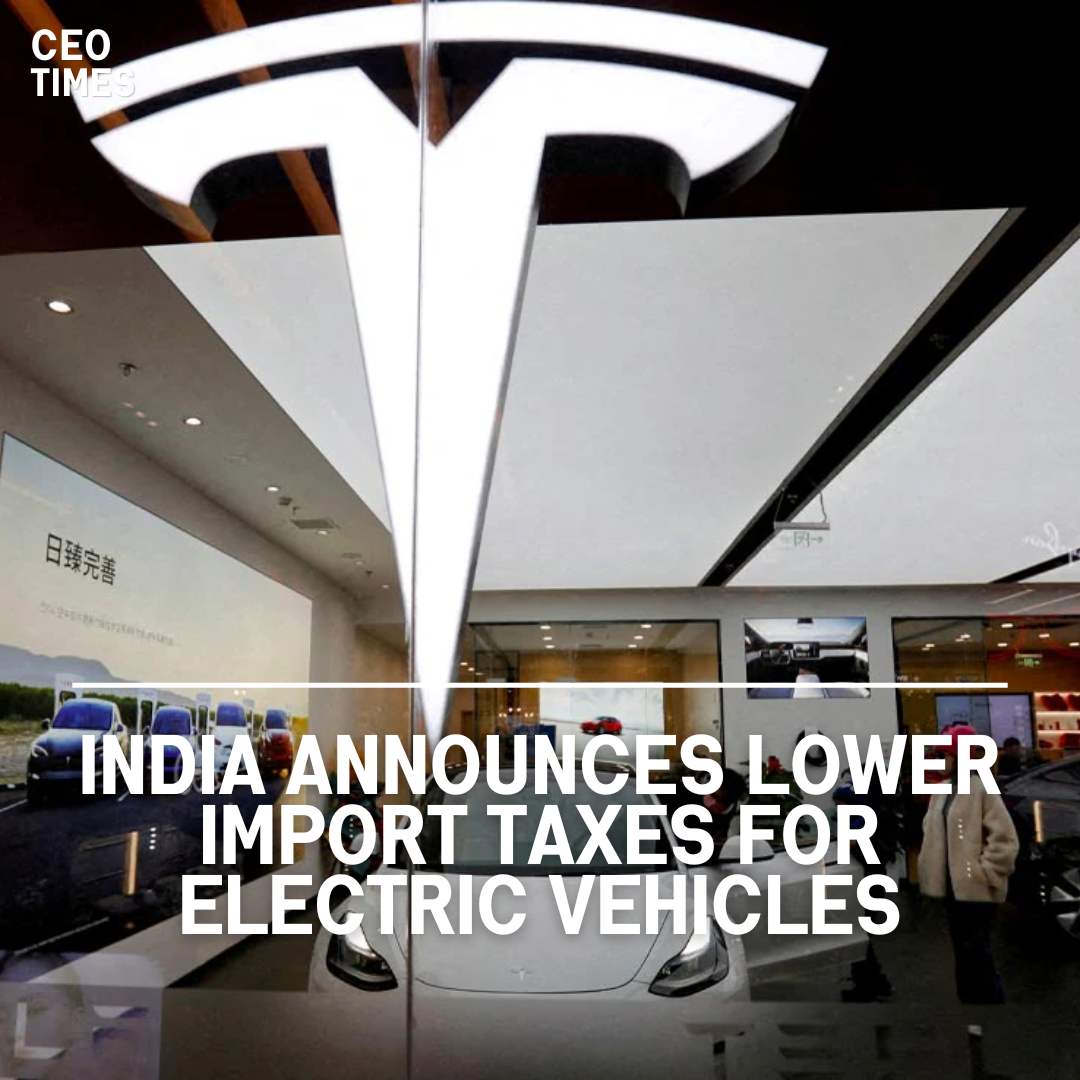India has unveiled a new policy to reduce import taxes on specific electric vehicles, provided that carmakers commit to substantial investments and domestic manufacturing within a defined timeframe.
This move signals increased competition in India’s electric vehicle (EV) market, with global players such as Tesla and VinFast eyeing opportunities in the world’s third-largest car market amidst a slowdown in global EV growth.
Policy Details and Objectives:
The newly announced policy seeks to incentivize investment in domestic electric vehicle manufacturing by lowering import taxes for carmakers committing to invest at least $500 million and commence production within three years.
This initiative seeks to stimulate the adoption of electric vehicles and aligns with India’s goal of increasing EV penetration to 30% of total car sales by 2030.
Electric Vehicle Plans by India Automakers Market:
- Tata Motors: Tata Motors, a dominant player in India’s electric car market, plans to expand its electric vehicle portfolio to include ten models over the next 3-4 years. The company aims for EVs to constitute 25% of its total car sales by 2025, compared to 9.3% in the previous year.
- Mahindra and Mahindra: Mahindra and Mahindra anticipates that electric models will represent 20% to 30% of its SUV sales by March 2027. The company, which currently offers an electric version of its XUV 400 SUV, intends to introduce new electric SUVs in 2025.
- Hyundai Motor India: Hyundai Motor’s Indian unit plans to introduce five EV models by 2032 and expand its charging infrastructure. The company aims to invest nearly $4 billion in the Indian market over the next decade to support its EV initiatives.
- Maruti Suzuki India: India’s leading automaker, Maruti Suzuki, aims to launch six EV models by 2030. Its parent company, Japan’s Suzuki Motor, is set to roll out the group’s first battery EV from Maruti’s plant in Gujarat by the end of 2024.
- JSW Group: Indian conglomerate JSW Group has announced plans to invest $4.82 billion in Odisha’s electric vehicle and battery manufacturing projects. The group is also exploring partnerships, including discussions with Volkswagen, to bolster its EV endeavors.
India’s efforts to incentivize electric vehicle manufacturing and adoption reflect a broader global shift towards sustainable mobility, with stakeholders across the automotive industry increasingly prioritizing electrification initiatives.




















